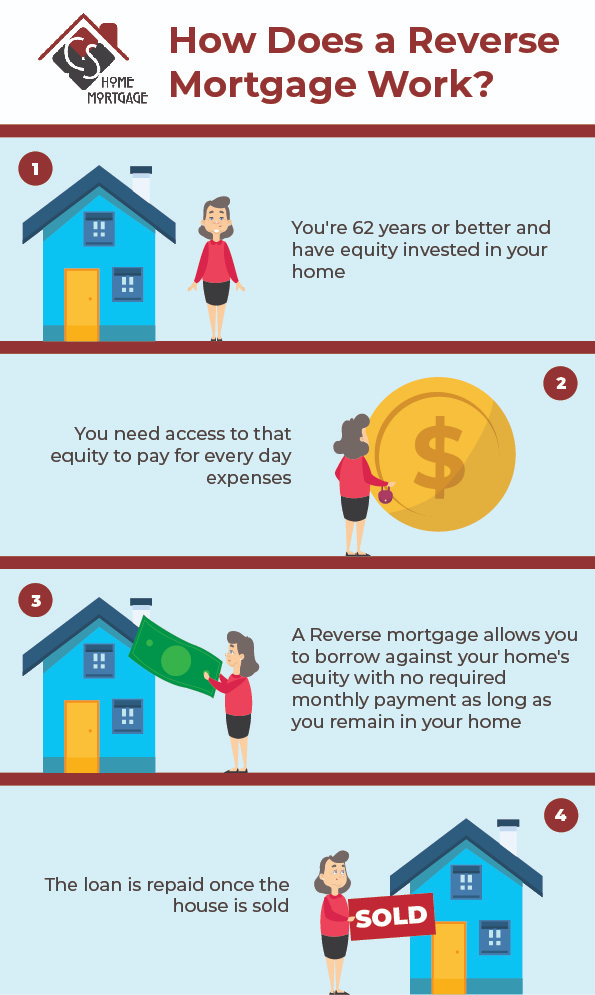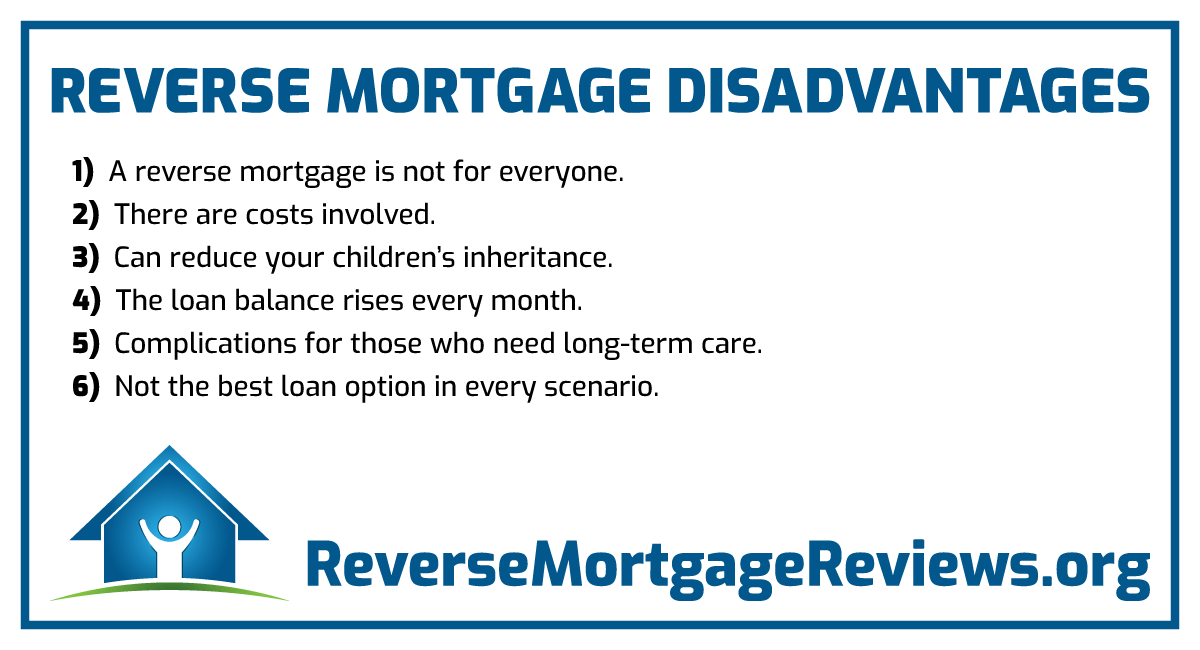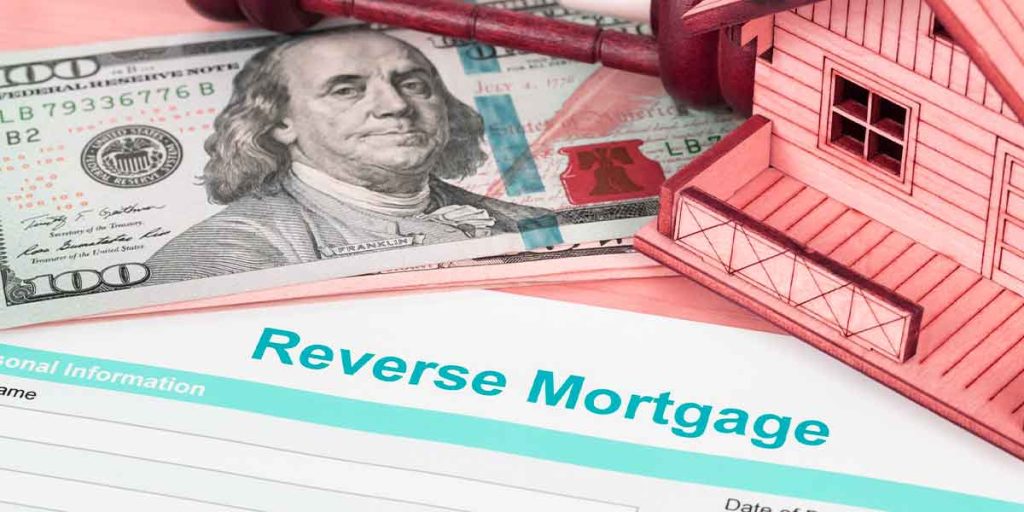Why More Homeowners Are Deciding to Purchase Reverse Mortgage
Why More Homeowners Are Deciding to Purchase Reverse Mortgage
Blog Article
Step-By-Step: Exactly How to Purchase a Reverse Home Mortgage With Confidence
Navigating the complexities of buying a reverse mortgage can be daunting, yet a methodical technique can encourage you to make enlightened decisions. It starts with evaluating your eligibility and recognizing the nuances of different finance options readily available in the market (purchase reverse mortgage). As we explore each step, it ends up being evident that self-confidence in this economic decision pivots on detailed preparation and notified selections.
Understanding Reverse Mortgages

The primary system of a reverse home mortgage includes loaning against the home's value, with the lending amount boosting gradually as interest accrues. Unlike traditional mortgages, debtors are not called for to make regular monthly settlements; instead, the lending is paid off when the homeowner sells the residential property, vacates, or dies.
There are two primary kinds of reverse home mortgages: Home Equity Conversion Mortgages (HECM), which are federally guaranteed, and proprietary reverse mortgages offered by private loan providers. HECMs generally provide higher protection because of their regulatory oversight.
While reverse mortgages can use monetary relief, they additionally come with prices, including origination fees and insurance policy premiums. Therefore, it is crucial for possible debtors to completely comprehend the terms and implications before continuing with this economic choice.
Evaluating Your Qualification
Eligibility for a reverse mortgage is mainly identified by several key aspects that prospective borrowers need to think about. Most importantly, candidates should be at least 62 years old, as this age requirement is established to make certain that borrowers are coming close to or in retired life. Furthermore, the home has to work as the customer's main home, which means it can not be a holiday or rental building.
One more essential aspect is the equity setting in the home. Lenders typically need that the debtor has an enough amount of equity, which can affect the quantity available for the reverse home mortgage. Generally, the a lot more equity you have, the bigger the financing quantity you might get.
In addition, prospective borrowers should show their ability to satisfy financial responsibilities, consisting of real estate tax, home owners insurance policy, and upkeep costs - purchase reverse mortgage. This evaluation typically consists of an economic evaluation conducted by the lending institution, which evaluates income, credit rating, and existing financial obligations
Finally, the residential property itself have to fulfill particular standards, consisting of being single-family homes, FHA-approved condos, or particular manufactured homes. Comprehending these variables is important for identifying qualification and planning for the reverse home mortgage process.

Investigating Lenders
After establishing your eligibility for a reverse mortgage, the following action includes researching lending institutions who use these monetary items. It is critical to recognize respectable lenders with experience in reverse mortgages, as this will ensure you receive trustworthy assistance throughout the process.
Begin by examining lender qualifications and accreditations. Search for loan providers that are members of the National Opposite Home Loan Lenders Organization (NRMLA) and are accepted by the Federal Housing Management (FHA) These associations can suggest a dedication to honest methods and conformity with market standards.
Reviewing client reviews and endorsements can provide understanding into the lender's track record and client service high quality. Internet sites like the Better Business Bureau (BBB) can likewise supply ratings and complaint backgrounds that may assist educate your choice.
In addition, talk to financial advisors or housing counselors that specialize in reverse home mortgages. Their proficiency can assist you navigate the options available and suggest credible lenders based on your distinct monetary scenario.

Contrasting Financing Alternatives
Contrasting funding choices is a crucial action in securing a reverse home loan that read what he said straightens with your economic goals. When evaluating various reverse mortgage products, it is necessary to consider the particular features, expenses, and terms associated with each option. Beginning by assessing the type of reverse home mortgage that best matches your needs, such as Home Equity Conversion Home Mortgages (HECM) or proprietary finances, which may have different qualification standards and advantages.
Following, pay attention to the passion prices and charges related to each funding. Fixed-rate finances supply security, while adjustable-rate alternatives might provide lower preliminary prices but can vary gradually. Additionally, think about the in advance costs, including home mortgage insurance coverage costs, source charges, and closing site prices, as these can considerably affect the total cost of the financing.
Additionally, analyze the settlement terms and how they line up with your lasting financial approach. Understanding the implications of just how and when the car loan must be settled is crucial. By extensively comparing these elements, you can make an informed decision, guaranteeing your selection sustains your financial well-being and supplies the protection you look for in your retired life years.
Settling the Purchase
When you have actually thoroughly reviewed your options and picked one of the most appropriate reverse home loan item, the following action is to complete the purchase. This process involves several important actions, making sure that all required documentation is accurately completed and submitted.
First, you will need to gather all called for documentation, consisting of evidence of revenue, real estate tax declarations, and house owners insurance documents. Your lending institution will provide a listing of particular documents needed to promote the approval process. It's essential to offer exact and complete information to stay clear of hold-ups.
Next, you will go through a comprehensive underwriting process. During this stage, the lender will evaluate your economic circumstance and the value of your home. This may include a home assessment to establish the residential or commercial property's market worth.
When underwriting is full, you will get a Closing Disclosure, which details the last regards to the funding, including fees and rates of interest. Evaluation this paper carefully to make certain that it lines up with your assumptions.
Final Thought
Finally, browsing the visit this website process of purchasing a reverse mortgage needs a detailed understanding of qualification requirements, diligent research study on loan providers, and careful contrast of funding alternatives. By methodically adhering to these actions, people can make educated decisions, making sure that the picked mortgage straightens with monetary objectives and demands. Inevitably, a well-informed approach cultivates self-confidence in protecting a reverse home loan, giving monetary security and support for the future.
Look for lenders who are participants of the National Reverse Home Mortgage Lenders Association (NRMLA) and are accepted by the Federal Housing Administration (FHA)Contrasting lending alternatives is a vital action in securing a reverse home loan that straightens with your monetary objectives (purchase reverse mortgage). Beginning by reviewing the type of reverse home loan that ideal fits your requirements, such as Home Equity Conversion Home Mortgages (HECM) or proprietary lendings, which might have various eligibility standards and advantages
In verdict, navigating the procedure of buying a reverse home mortgage calls for a detailed understanding of eligibility standards, attentive research study on lenders, and mindful contrast of lending choices. Inevitably, an educated approach fosters confidence in protecting a reverse home loan, offering financial security and support for the future.
Report this page